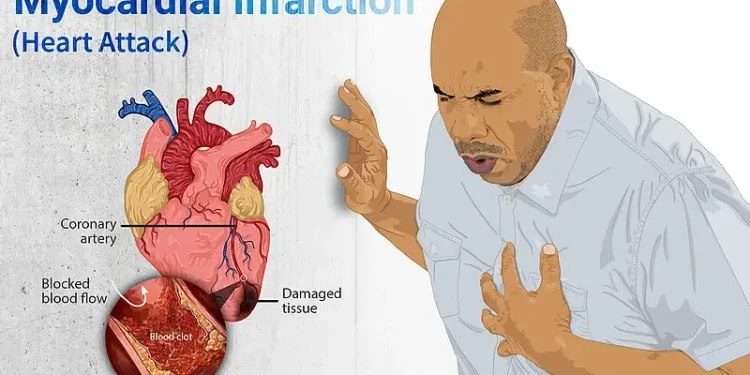Severe Infections May Lead to Long-Term Heart Failure Risk
A groundbreaking study funded by the National Institutes of Health (NIH) has revealed a concerning link between infection-related hospitalizations and an increased risk of heart failure. According to the findings published in the Journal of the American Heart Association, adults who were hospitalized due to severe infections, such as respiratory infections or sepsis, had more than double the risk of developing heart failure in the years following their illness.
The Findings and Study Insights
Conducted as part of the Atherosclerosis Risk in Communities (ARIC) Study, this research tracked 14,468 adults aged 45-64 over a period of 31 years (1987-2018). None of the participants had heart failure at the beginning of the study. The results showed:
- Individuals hospitalized due to infections had a 2.35 times higher risk of developing heart failure.
- The risk increased, on average, seven years post-hospitalization.
- The link persisted regardless of infection type, including respiratory and urinary tract infections.
- Nearly half of the participants had at least one infection-related hospitalization.
- The risk was nearly three times higher for heart failure with preserved ejection fraction (HFpEF), a common form among older adults with limited treatment options.
| Statistics | Findings |
|---|---|
| Study Duration | 31 years (1987-2018) |
| Participants | 14,468 adults (ages 45-64) |
| Increased Risk | 2.35x higher heart failure risk after infection-related hospitalization |
| Average Time to Heart Failure | 7 years post-infection |
| Most Affected Group | Older adults with HFpEF |
Understanding Heart Failure Risks
Heart failure occurs when the heart is unable to pump sufficient blood to meet the body’s needs. The study primarily focused on two types:
- Heart Failure with Preserved Ejection Fraction (HFpEF): The heart muscle is too stiff to relax properly between beats.
- Heart Failure with Reduced Ejection Fraction (HFrEF): The left ventricle is too weak to pump blood effectively.
Both conditions showed increased risk following infection-related hospitalizations.
Implications for Public Health
While the study does not establish a direct causal link, the findings underscore the importance of infection prevention and early cardiovascular monitoring.
Preventive Measures:
- Stay Up-to-Date on Vaccinations: Protect against common infectious diseases.
- Practice Good Hygiene: Reduce exposure to harmful pathogens.
- Manage Underlying Conditions: Those with cardiovascular risk factors should consult their healthcare provider.
- Early Cardiovascular Assessment: Individuals who have experienced severe infections should undergo regular heart health checkups.
Future Research Directions
Dr. Ryan Demmer, senior author and epidemiology professor at the Mayo Clinic, emphasized the need for further research to validate the causal relationship between infections and heart failure.
Future studies may explore integrating infection history into heart failure risk assessments to improve patient management.
Final Thoughts
This study serves as a crucial reminder that severe infections can have long-term health implications beyond their immediate effects. Healthcare providers and at-risk individuals should consider proactive strategies to prevent infections and monitor heart health over time.
Sources: National Heart, Lung, and Blood Institute (NHLBI) or the National Institutes of Health (NIH).









